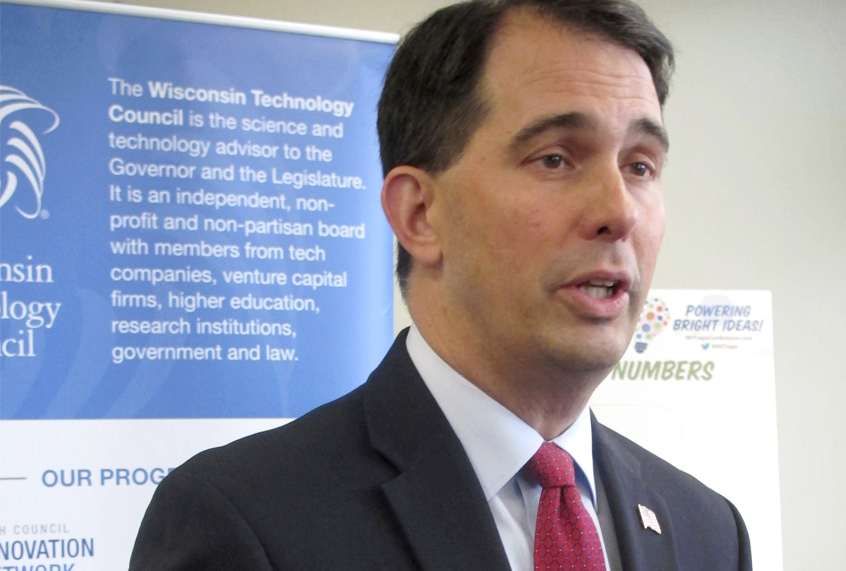Scott Walker, the controversial Republican Wisconsin governor best known for his championing of restrictive Voter ID laws, was defeated in his bid for a third term as chief executive of the Badger State.
The Democrat who defeated Walker, State Superintendent of Public Instruction Tony Evers, ran against Walker by denouncing the governor’s support for stripping away health care services for Wisconsinites and for hurting the quality of the state’s education system, according to CNN. There were also concerns among Republicans that Walker’s cause was weakened by the fact that he was seeking a third term as the state’s governor — not unprecedented, as Republican Tommy Thompson served four terms, but still a dauntingly lengthy tenure.
Yet Walker was also viewed as something of a political leviathan in Wisconsin, owing not only to his successful crusade against public sector labor unions in the state but also to his ability to stave off a recall bid in 2012 that could have ended his gubernatorial career before his first term had been completed. After defeating Milwaukee Mayor Tom Barrett in that contest, Walker went on to be reelected in 2014 and became a contender for the 2016 Republican presidential nomination, although he ultimately lost that to Donald Trump. Prior to Election Day 2018, polls had varied greatly in terms of whether Evers or Walker would win, with results ranging from Walker being slightly ahead to Evers having a more sizable lead. Past presidential elections did not provide an easy window into foreseeing the state’s election results either, as Wisconsin had voted for Democratic presidential candidates since 1988 before swinging to Donald Trump in 2016.
Evers, like many other Democrats running in purple states, avoided bringing up Trump during his campaign and instead focused on Walker’s record.
It is worth noting that, although Evers defeated Walker by 1,323,904 votes to 1,292,817 votes (more than 1 percentage point), the Republican incumbent has yet to concede the election, according to Milwaukee ABC affiliate WISN. According to Lt. Gov. Rebecca Kleefisch, the Walker campaign is refusing to concede because “we are preparing for the likelihood or a recount.” Walker campaign spokesman Brian Reisinger went one step further, saying that “we need the official canvass and for military ballots to be counted before any decision can be made. Thousands of ballots were damaged and had to be recreated. Until there is a comparison of the original ballots to the recreated ballots, there is no way to judge their validity.”
By contrast, Evers delivered a victory speech on election night, telling Wisconsin voters that “the real work starts tomorrow. Voters agree, it’s time for a change Wisconsin.”
The irony of the Walker campaign’s approach, of course, is that the right-wing Republican made a name for himself as a champion of Voter ID laws, which were justified under the false claim that they were attempting to stop voter fraud but were transparently an effort to disenfranchise predominantly Democratic voters. As Rep. Glenn Grothman admitted during the 2016 election, “I think Hillary Clinton is about the weakest candidate the Democrats have ever put up. And now we have photo ID, and I think photo ID is going to make a little bit of a difference as well.”

